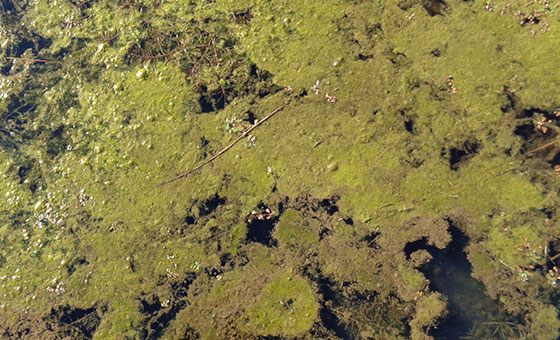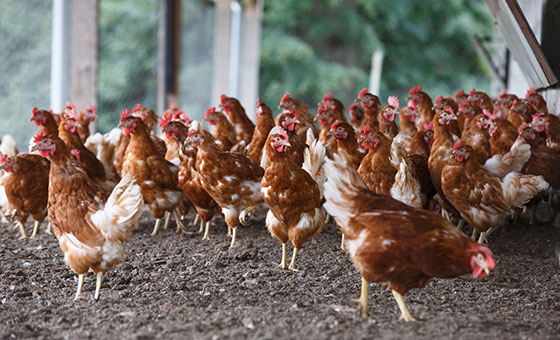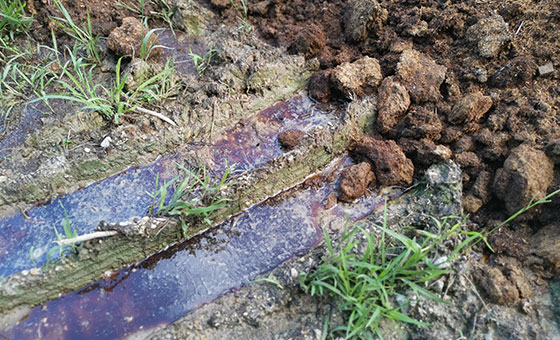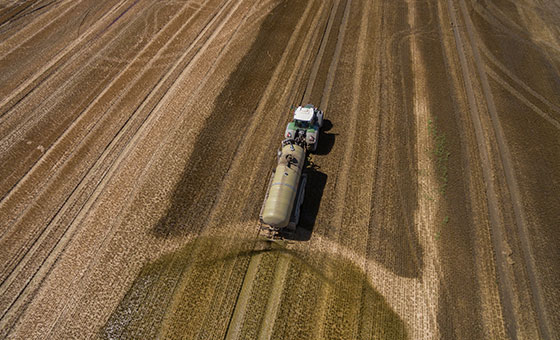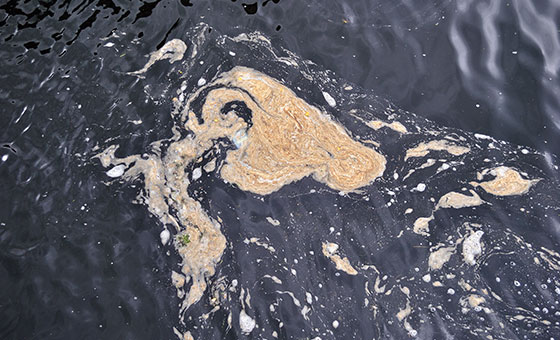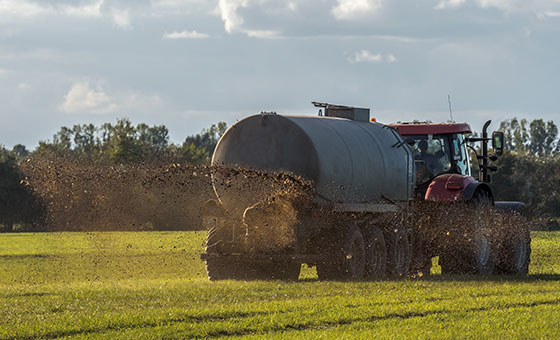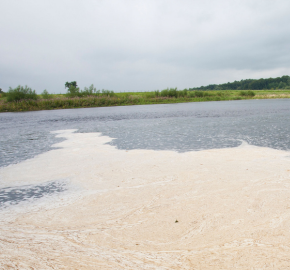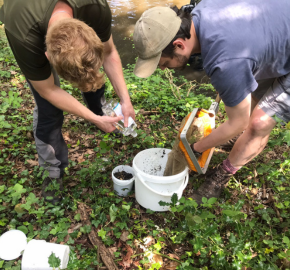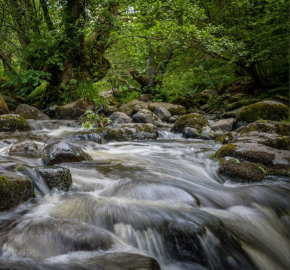This is the process by which excess sediments, nutrients and chemicals from agricultural practice seep into the water.

What are the impacts of agricultural pollution on freshwater?
1. Excess phosphorus
Phosphates from fertilisers leach into the water and change plant communities. This can lead to toxic algal blooms and disrupts the food chain for wild fish.
Agriculture contributes 28% of the total phosphorus found in freshwater.
2. Chemical run-off
A cocktail of chemicals and pesticides (including antibiotics, wormers and other types of medication given to livestock) leach into the water and damage the ecology of river systems.
36% of the pesticides currently in use have been found in catchment-sensitive farming rivers. These are rivers that flow through land areas where free training and advice have been offered to farmers and landowners to improve water quality.
3. A build-up of fine sediments
2.9 million tonnes of soil are lost from fields every year in England and Wales, in a process called ‘surface run-off’. Excess fine sediment from this soil loss clogs up spawning redds where wild fish lay their eggs.
Too much sediment can also destroy aquatic invertebrate populations.
77% of these fine sediments are derived from agriculture. In 2010, soil degradation in England and Wales cost an estimated £1.2 billion in repair.

